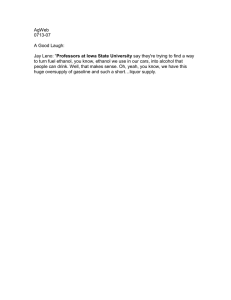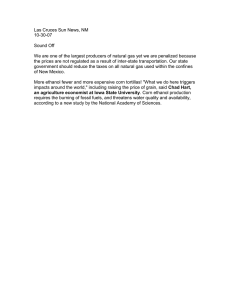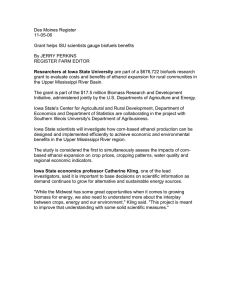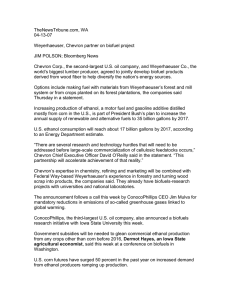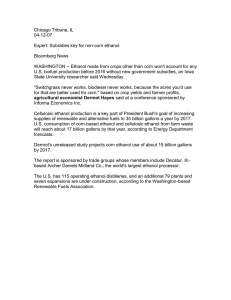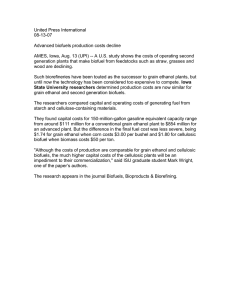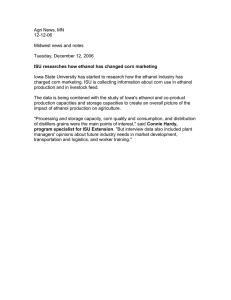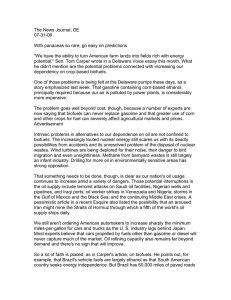Des Moines Register 12-07-07 House-approved bill boosts biofuels use
advertisement
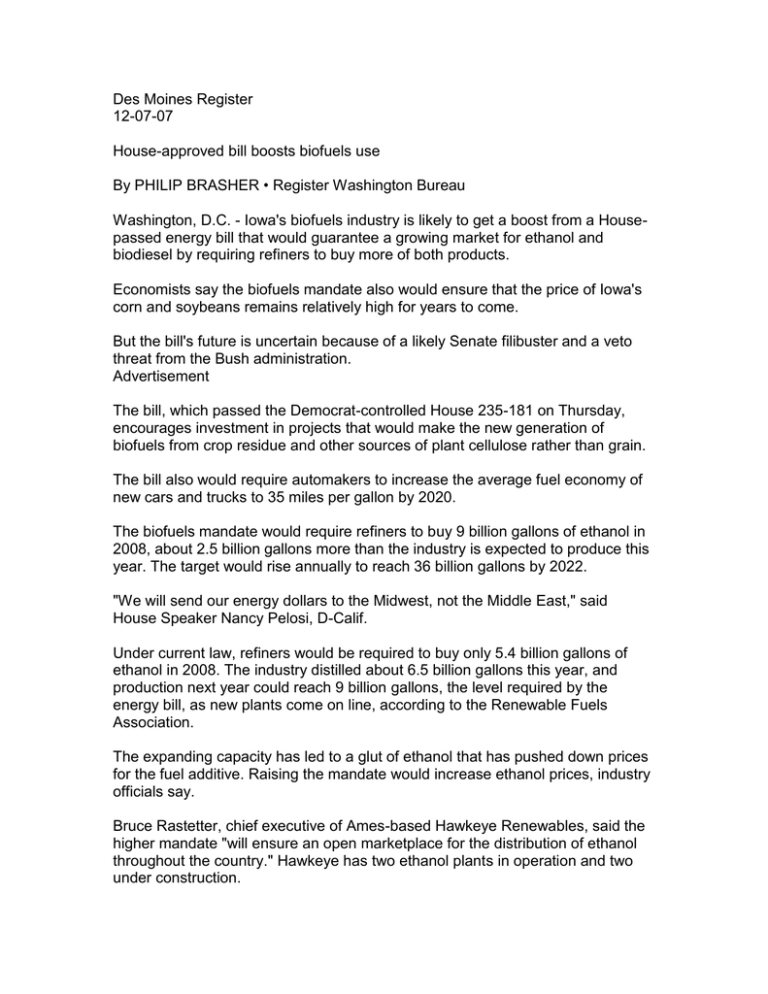
Des Moines Register 12-07-07 House-approved bill boosts biofuels use By PHILIP BRASHER • Register Washington Bureau Washington, D.C. - Iowa's biofuels industry is likely to get a boost from a Housepassed energy bill that would guarantee a growing market for ethanol and biodiesel by requiring refiners to buy more of both products. Economists say the biofuels mandate also would ensure that the price of Iowa's corn and soybeans remains relatively high for years to come. But the bill's future is uncertain because of a likely Senate filibuster and a veto threat from the Bush administration. Advertisement The bill, which passed the Democrat-controlled House 235-181 on Thursday, encourages investment in projects that would make the new generation of biofuels from crop residue and other sources of plant cellulose rather than grain. The bill also would require automakers to increase the average fuel economy of new cars and trucks to 35 miles per gallon by 2020. The biofuels mandate would require refiners to buy 9 billion gallons of ethanol in 2008, about 2.5 billion gallons more than the industry is expected to produce this year. The target would rise annually to reach 36 billion gallons by 2022. "We will send our energy dollars to the Midwest, not the Middle East," said House Speaker Nancy Pelosi, D-Calif. Under current law, refiners would be required to buy only 5.4 billion gallons of ethanol in 2008. The industry distilled about 6.5 billion gallons this year, and production next year could reach 9 billion gallons, the level required by the energy bill, as new plants come on line, according to the Renewable Fuels Association. The expanding capacity has led to a glut of ethanol that has pushed down prices for the fuel additive. Raising the mandate would increase ethanol prices, industry officials say. Bruce Rastetter, chief executive of Ames-based Hawkeye Renewables, said the higher mandate "will ensure an open marketplace for the distribution of ethanol throughout the country." Hawkeye has two ethanol plants in operation and two under construction. The bill includes a new requirement for biodiesel use that starts at 500 million gallons in 2009 and grows to 1 billion gallons in 2012. The bill's fate is clouded because of a $21 billion tax package and a provision that would require electric utilities to increase production of wind and solar power. The bill would take back tax breaks for oil companies and use the money for renewable-energy incentives, including tax credits for biodiesel and cellulosic ethanol. Senate Republicans have pledged to filibuster the bill, and the Bush administration has threatened to veto it. Iowa's House delegation split along party lines. Republican Rep. Tom Latham said the bill could increase gasoline and heating costs. Democratic Rep. Leonard Boswell said it would be a "tremendous boost to Iowa's economy by promoting increased production of renewable fuels." What isn't in doubt is what the biofuels mandate would mean for corn and soybean farmers. Iowa State University economist Bruce Babcock said he sees "five years, eight years, of high corn prices, high soybean prices." The mandate also guarantees a market for cellulosic ethanol, a boost to projects such as one by Poet LLC to distill ethanol from cobs as well as corn kernels in Emmetsburg. The bill would require 21 billion gallons of cellulosic ethanol to be produced by 2022. That's a "tall order," given there is no commercial cellulosic ethanol plant now in commercial operation, said Robert Brown, who directs Iowa State University's Office of Biorenewables Programs. Environmentalists won a provision in the bill that would make it difficult to build conventional corn ethanol plants that burn coal rather than natural gas. Grain ethanol would be required to have 20 percent lower greenhouse gas emissions than gasoline.
